Loading images in Proton Mail
There are two types of images in the emails you receive:
- Remote images, which are loaded from an external server
- Embedded images, which are typically added as attachments to the email
Remote images may act as trackers that send information back to the sender, including when the email was read, your IP address, or the device used to read the email. The use of email trackers is widespread, making them a serious threat to your privacy.
Thanks to Proton Mail’s tracker protection, senders cannot use remote images to reliably determine who, when, or where someone opens an email, so remote images are shown automatically in the emails you read.
If you prefer, you can also load images manually instead. Please note that this setting isn’t synced across our apps, so you’ll need to configure it by platform.
Loading images on the web
Loading images on Android
Loading images on iPhone and iPad (iOS and iPadOS)
Images still not loading by default?
Loading images on the web
Always show images
To always show remote images:
1. Sign in to Proton Mail at mail.proton.me(yeni pencere) and click Settings → All settings → Proton Mail → Email privacy.
2. Enable the Auto show remote images switch.
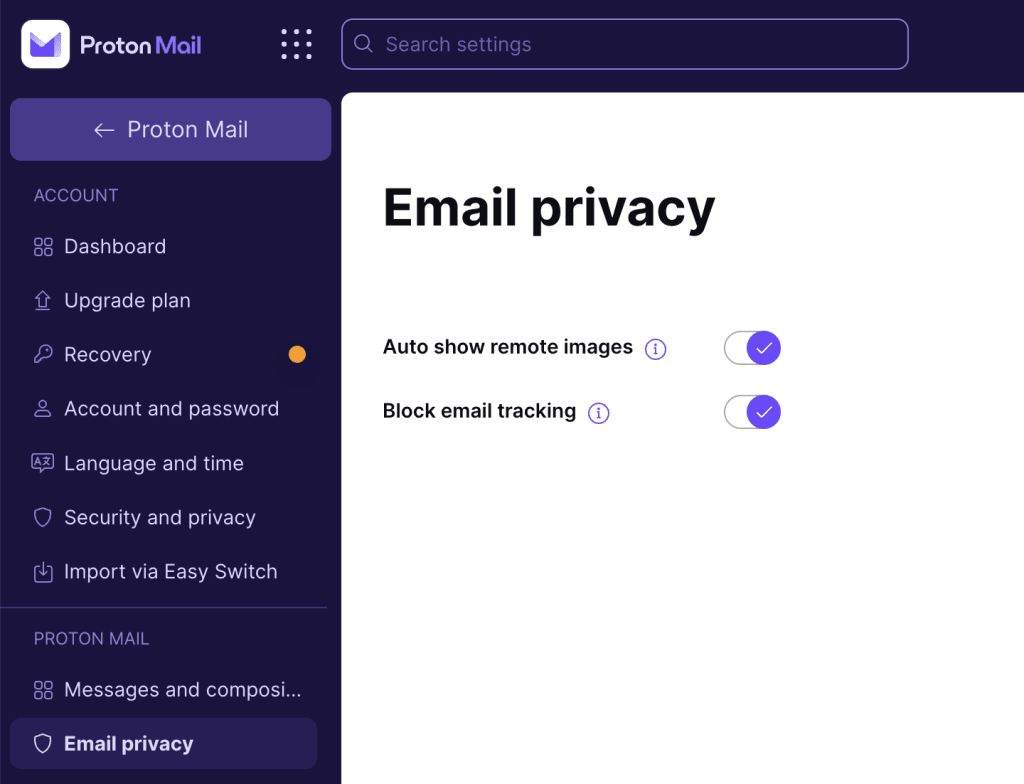
Note: This is the default setting. If you disable it, you can re-enable it again following the steps above.
To always show embedded images:
1. Sign in to Proton Mail at mail.proton.me(yeni pencere) and click Settings → All settings → Proton Mail → Messages and composing. Scroll down to the Messages section.
2. Enable the Auto show embedded images switch.
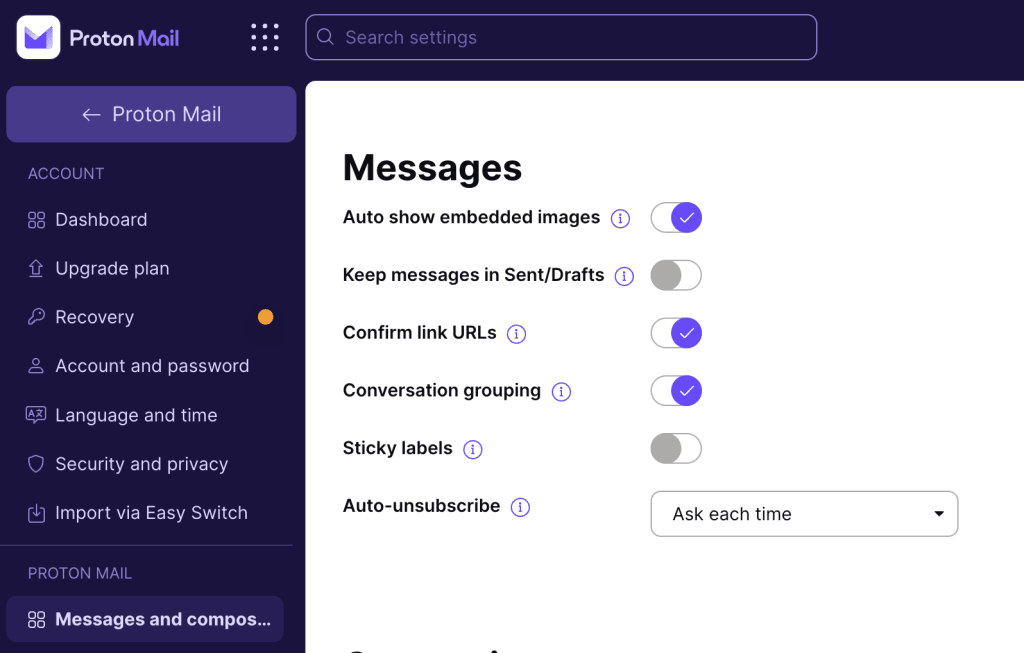
Note: This is the default setting. If you disable it, you can re-enable it again following the steps above.
Ask before showing images
To ask before showing remote images:
1. Sign in to Proton Mail at mail.proton.me(yeni pencere) and click Settings → All settings → Proton Mail → Email privacy.
2. Deactivate the Auto show remote images switch.
Note: As part of tracking protection, remote images are automatically downloaded and cached on our servers as you receive emails. If you want to disable this feature, you need to deactivate the Block email tracking switch.
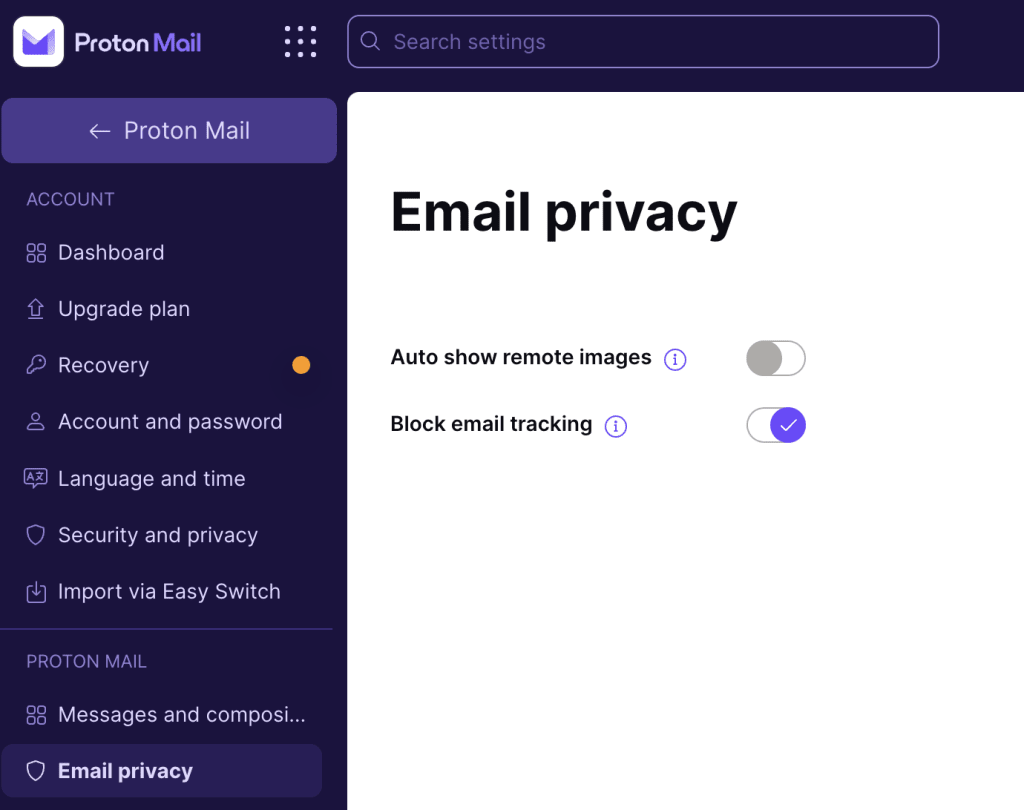
3. Open the email with the images you wish to load. You should see a banner at the top of the email that says This message contains remote content.
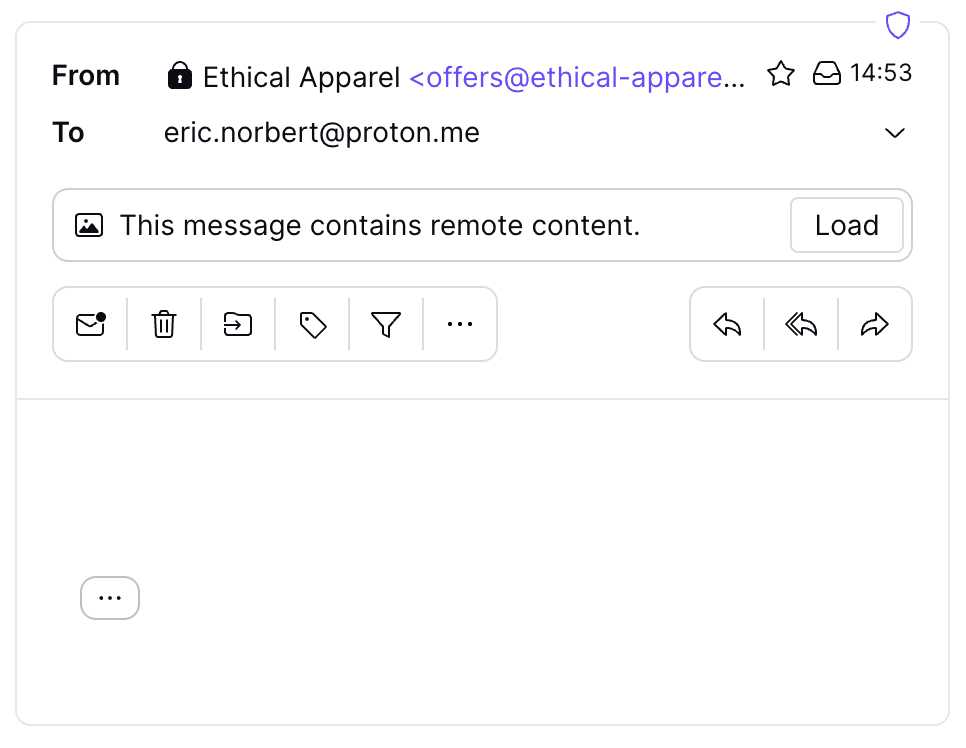
4. Click Load. You should now see remote images displayed in your email.
To ask before showing embedded images:
1. Sign in to Proton Mail at mail.proton.me(yeni pencere) and click Settings → All settings → Proton Mail → Messages and composing. Scroll down to the Messages section.
2. Deactivate the Auto show embedded images switch.
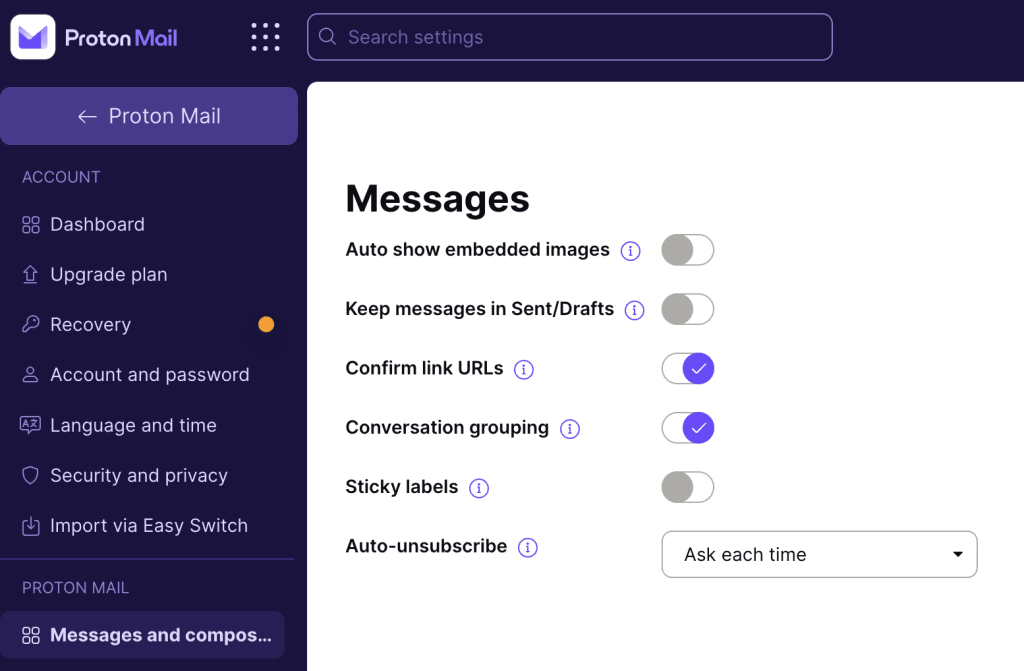
3. Open the email with the images you wish to load. You should see a banner at the top of the email that says Load embedded images. Click on it.
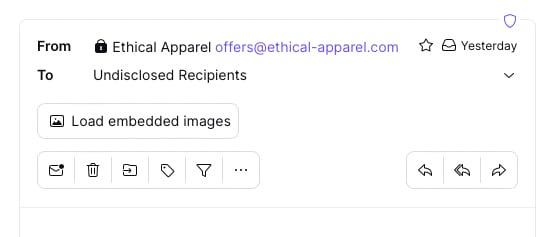
4. You should now see embedded images displayed in your email.
Loading images on Android
To update your image settings in the Android app:
1. Tap Settings.
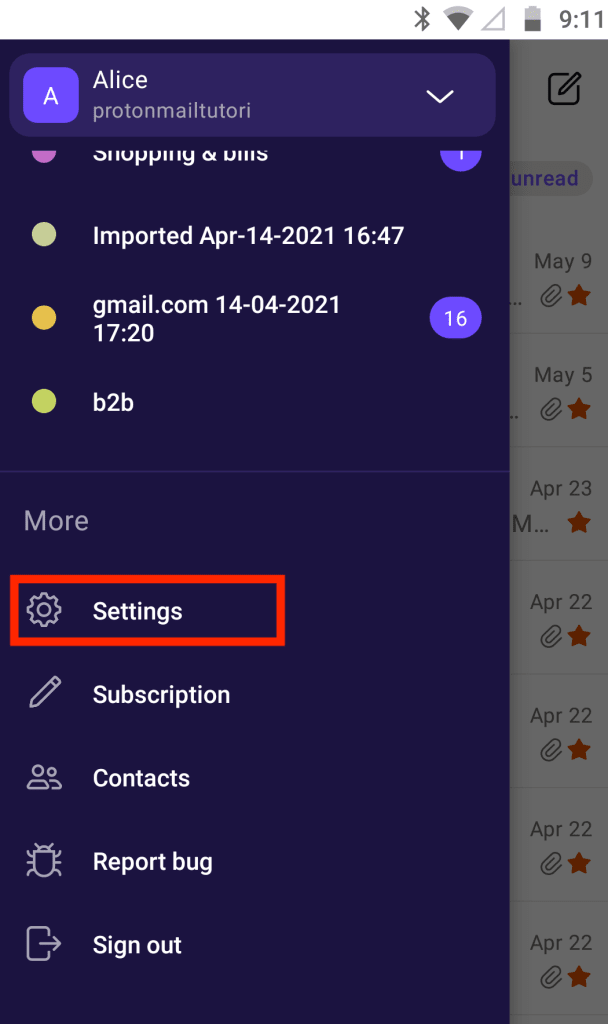
2. Select your account and scroll down and tap Privacy.
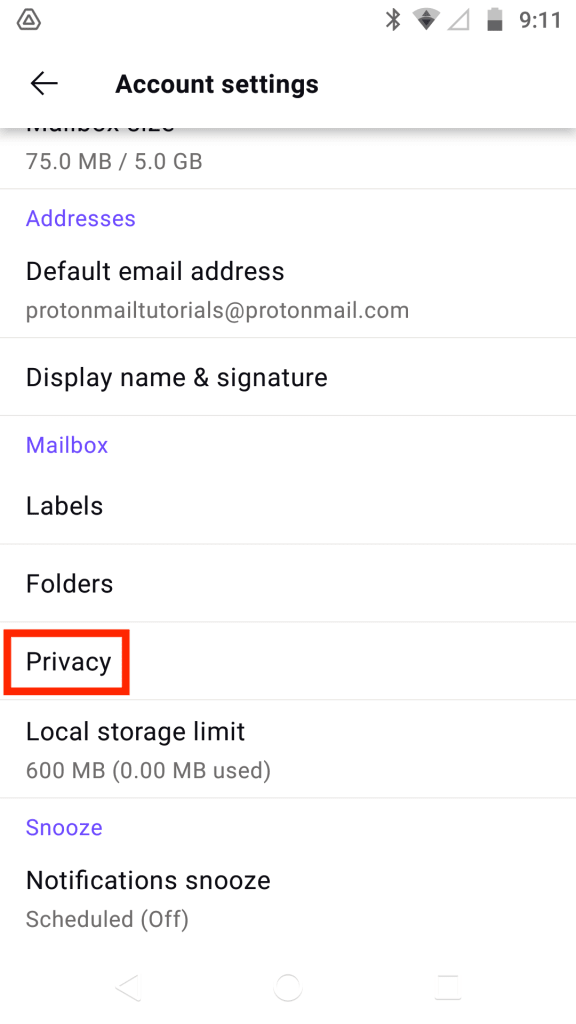
3. To set images to load automatically, turn on the Auto Show Remote Images and Auto Show Embedded Images switches.
To load images manually, turn off these two switches.
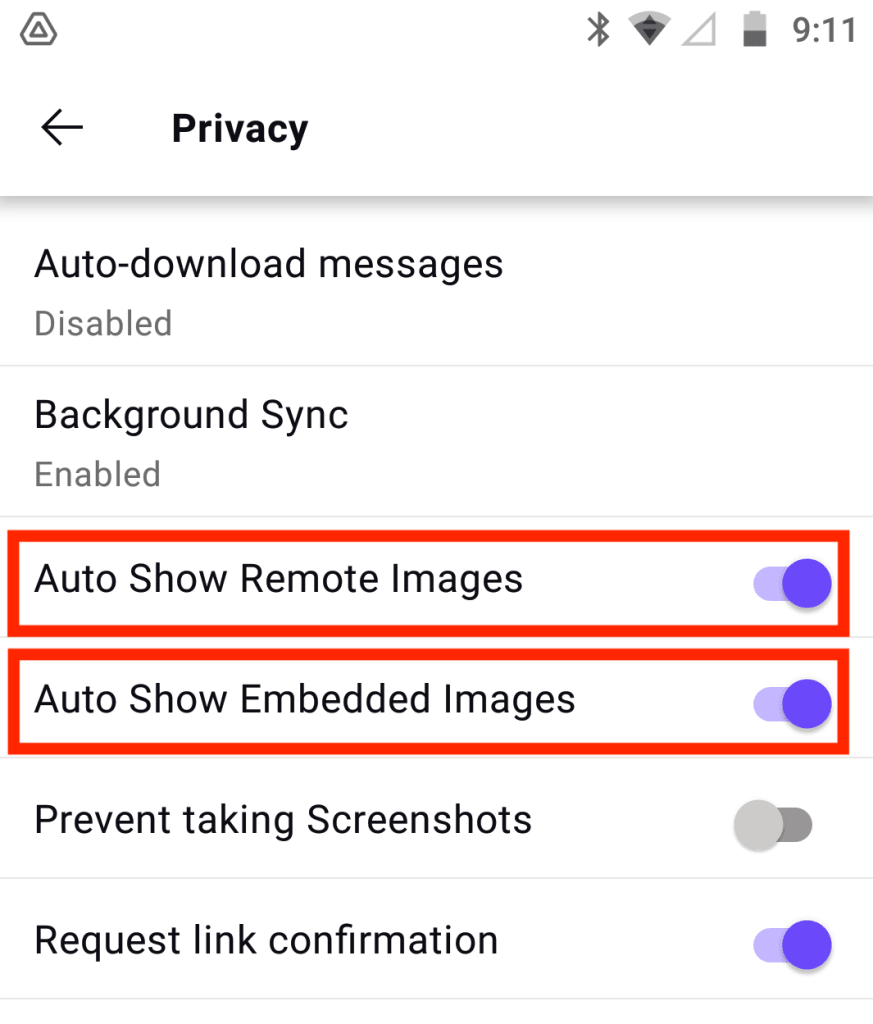
Loading images on iPhone and iPad (iOS and iPadOS)
To update your image settings in the iOS app:
1. Tap Settings.
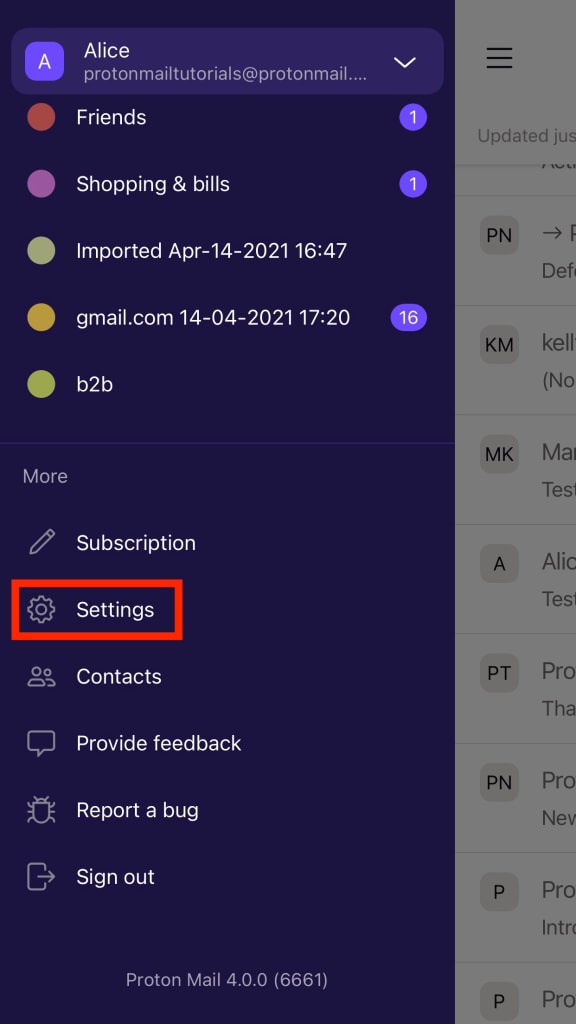
2. In the Account settings section, tap Privacy.
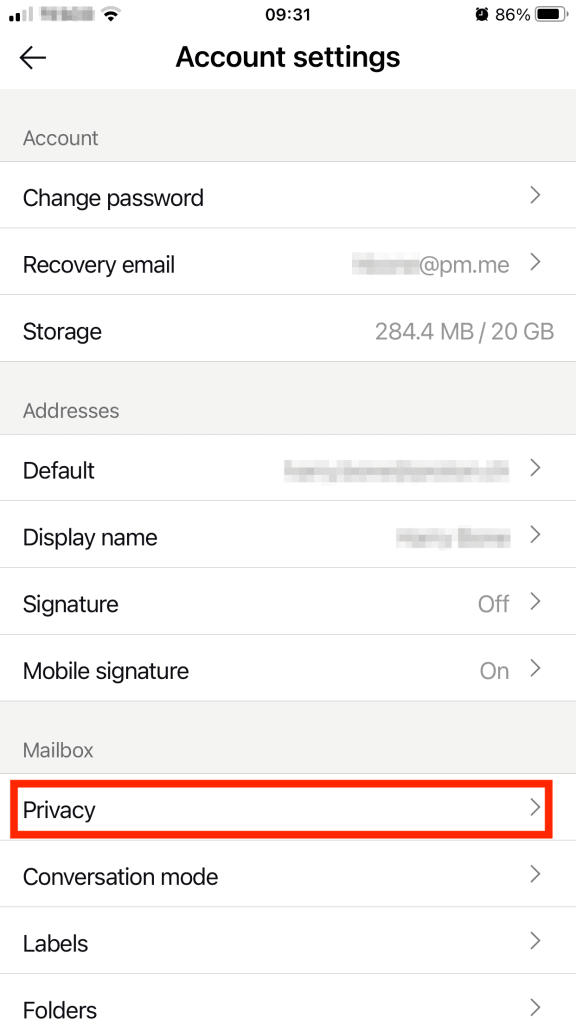
3. To set images to load automatically, turn on the Auto-load remote content and Auto-load embedded images switches.
To load images manually, turn off these two switches.
Note: As part of tracking protection, remote images are automatically downloaded and cached on our servers as you receive emails. If you want to disable this feature, you need to deactivate the Block email tracking switch.
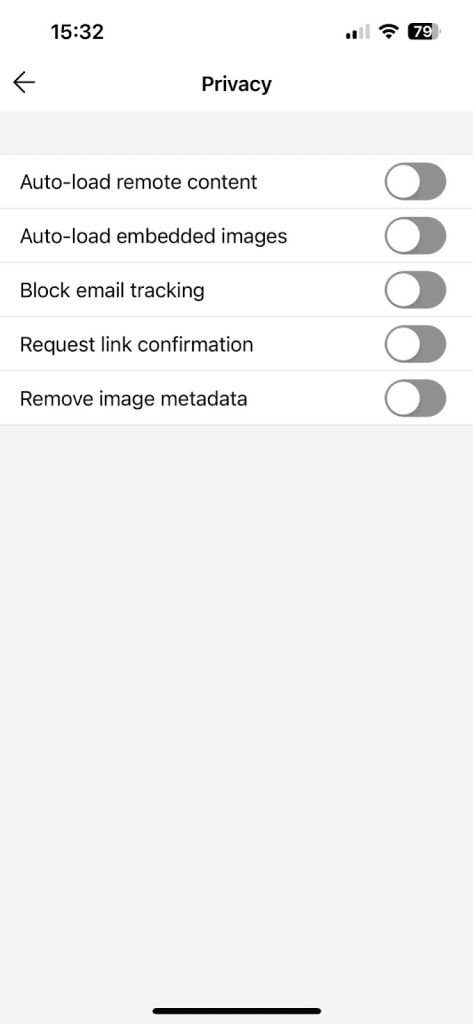
Images still not loading by default?
If the images in your emails still do not load automatically, your browser’s settings might be preventing this. You can check the image settings in your browser by following these steps:
Firefox
Open Firefox and type in about:preferences#privacy in the address bar. Under Enhanced Tracking Protection, select Standard.
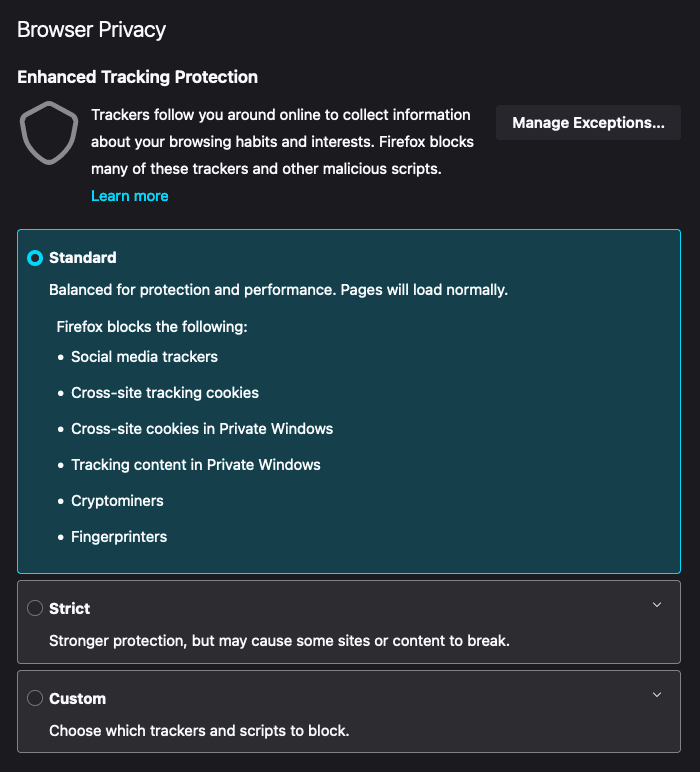
Chrome
Open Chrome and type in chrome://settings/content/images/ in the address bar. Under Default Behaviour, select Sites can show images.
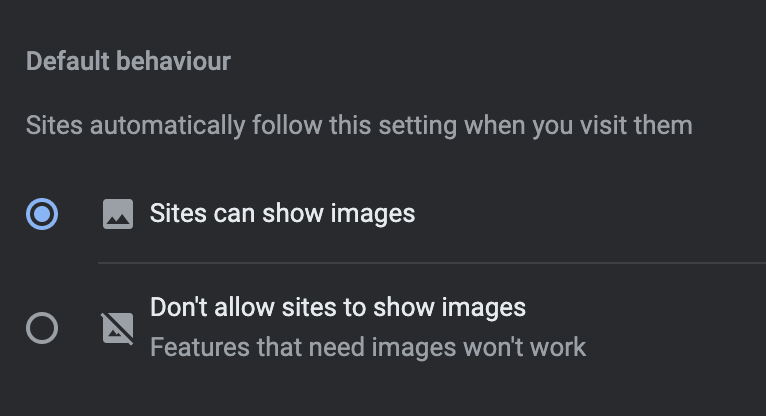
Edge
Open Edge and type in edge://settings/content/images/ in the address bar. Under Images, activate the toggle to show all images by default.

Brave
Open Brave and type in brave://settings/content/images/ in the address bar. Under Images, activate the toggle to show all images by default.
